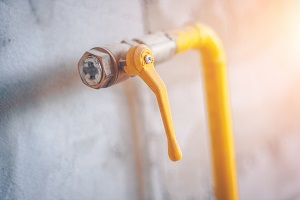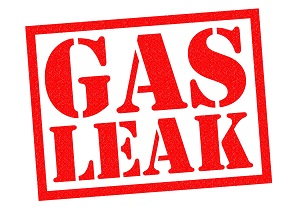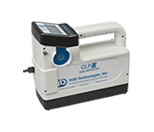In any line of work, ensuring the safety and security of the employees is a top priority. This is especially crucial in fields that deal with manufacturing, such as petroleum and chemical refining, as well as food processing. Cleaning, waste handling, and recycling systems also require advanced protective measures.

All of these processes make use of fossil fuels like petroleum, oil shales, coal, tar sands, and bitumens. They’re typically drilled, extracted, refined, and burned to produce heat, which is a vital component in the production of electricity and fuel.
While these precious substances are kept in sealed containers, transported through pipes, and handled with the utmost care, mishaps can still occur. Because of wear, force, or general damage, the vessels and lines may crack or break, resulting in a gas leak, something that factories and production plants avoid at all costs.
It exposes workers and other people in the area to toxic substances, jeopardizing their health. Some cause skin rashes and burns, while others irritate the eyes, nose, and respiratory tract. In worst cases, the gas can dull one’s senses and cause loss of consciousness or even life. There’s also a chance that the matter is combustible, bursting into flames when a spark lights up.
There’s no doubt that authorities should do everything possible to keep leaks from happening or worsening, given the hazard that they pose. Luckily, there’s a way to do so. Here’s how putting fixed gas detection systems in place can save lives.
Identifies and Measures Present Gases
At its core, this system acts as the first line of defense against toxic gas exposure, setting off an alarm once it senses dangerous materials or concentrations. It comes in different types and is categorized by the kind of substances that it picks up and how it works.
For Combustible Gases: Substances that fall into this group include butane, hydrogen, methane, and propane. One of the commonly used detectors for these is a catalytic sensor, which has a platinum-treated wire coil that releases heat when it interacts with combustible gas. It delivers an accurate result in a short period, making it a quick and cost-effective solution.
The other go-to option is an infrared detector, but it’s only used for hydrocarbon-based gases and vapors. Unlike a catalytic sensor, this type can function on its own, automatically checking itself for possible issues that compromise its abilities. Also, it’s not easily affected by long-term exposure to certain substances or oxygen level changes, making it a low-maintenance device.
For Toxic Gases: These refer to substances that are highly poisonous to humans, like carbon monoxide, chlorine, hydrogen sulfide, nitric oxide, and sulfur dioxide. To identify them, use an electrochemical sensor, which produces quick and accurate readings. One problem it has, however, is that it sometimes malfunctions when working in an environment with extreme temperatures. But, it should work well if maintained properly.
Another available device is a metal oxide semiconductor (MOS). While it didn’t perform well under humidity changes in the past, its recent nanotechnology upgrade has allowed it to work in such conditions. Aside from that advantage, MOS can detect a wider range of gases, both toxic and combustible. Plus, it provides an accurate reading in as fast as 5 seconds, lasts much longer than most of its counterparts, and keeps running until it’s turned off.
Gives Real-Time Data

When it comes to safety and security, time is of the essence. The sooner the people find out about the presence of toxic materials in the air, the faster they can evacuate, giving them better chances of avoiding exposure. To stay on top of the situation, both authorities and employees have to be constantly aware of the indoor air’s state. This vigilance will help them handle any problematic event promptly, lowering the likelihood of having the personnel develop health issues.
Get in touch with DOD Technologies, Inc. to find a high-quality gas leakage detection system for your business. They handle installation and maintenance as well, to ensure the safety of you and your employees.








